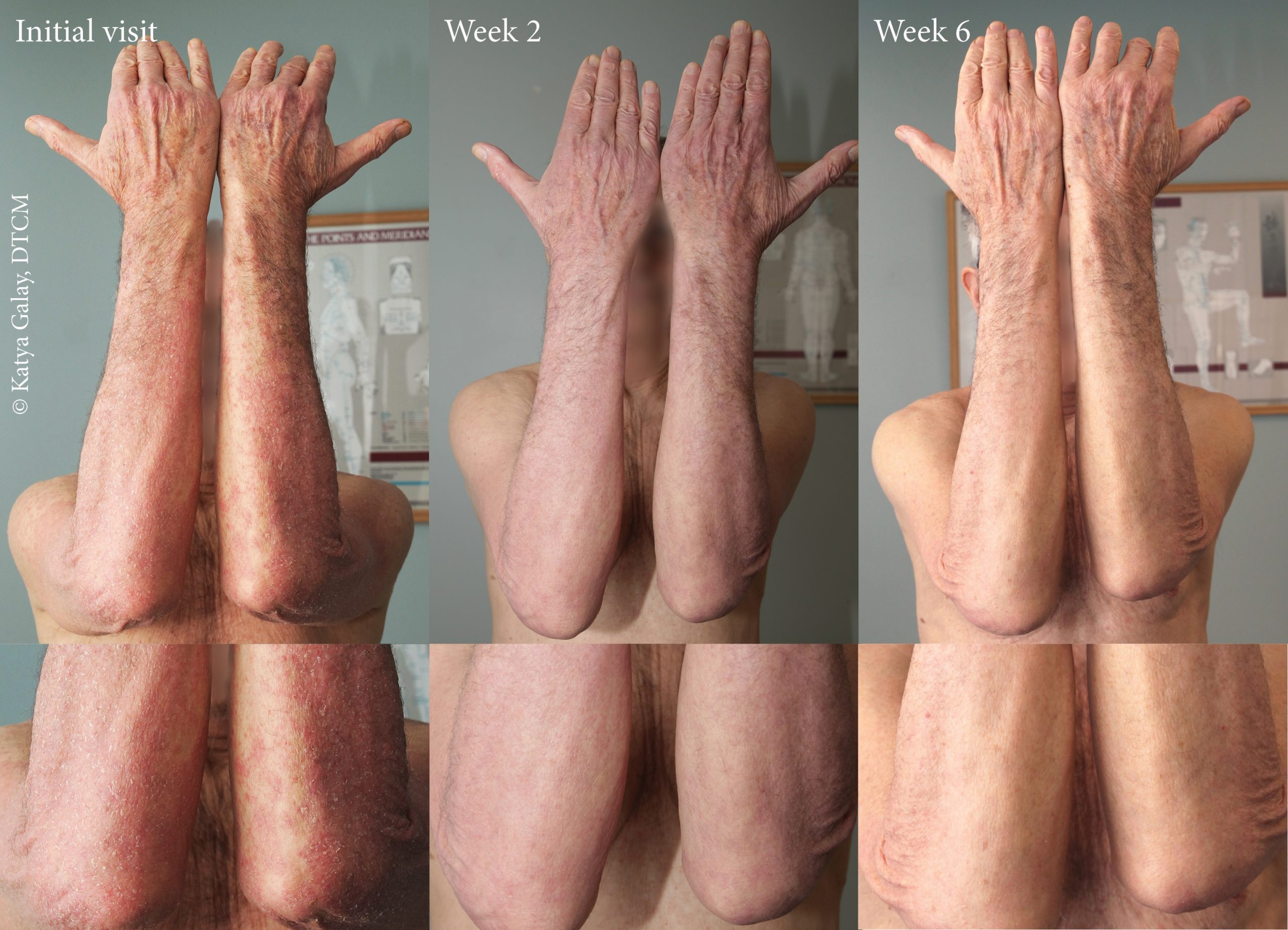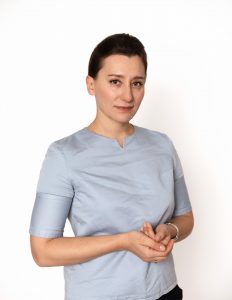Skin conditions addressed with TCM Dermatology
TCM Dermatology Specialist
Katya Galay, DTCM, is a doctor of Traditional Chinese Medicine and an expert in managing inflammatory skin conditions in Latham, New York. Schedule your in-person or telehealth consultation today.
Katya Galay, DTCM, LAc
Doctor of Traditional Chinese Medicine
TCM Dermatology Diplomat since 2019
Member of International TCM Dermatology Association
NCCAOM Board Certified in Oriental Medicine
What is TCM Dermatology
Traditional Chinese Medicine (TCM) has been used to address skin diseases for more than two thousand years. TCM dermatology is a comprehensive, methodical system of treatment that excels where modern dermatology often fails – when tackling autoimmune and inflammatory skin disorders. In Chinese Medicine, the goal is to create a complete shift in the body’s internal environment, so that the disease is either completely eradicated, or kept steadily under control. The outcomes can often include complete clearing of skin and systemic symptoms of the disease. TCM dermatology views superficial inflammation as only one aspect of the disease. Other important aspects include systemic inflammation, impaired microcirculation, and dysfunction and malnourishment of skin layers. In TCM dermatology the goal is both to clear inflammation and restore normal physiological functions necessary for healthy and well-nourished skin.
TCM Dermatology Treatment Timeline
The length of treatment with Chinese herbal medicine is usually 3 to 12 months, depending on the severity and chronicity of the disease. The first noticeable progress appears after the first 4-8 weeks of treatment. During the initial 1 hour long assessment visit, we review the patient’s health history, take photos of the skin lesions and chart out the treatment plan. The medicine consists of liquid herbal formulas (to be taken internally) made specifically for each patient’s unique set of symptoms, as well as topical herbal products to support the healing of skin externally. A follow up visit is required every three to four weeks.
Telemedicine appointments are available for remote patients.


